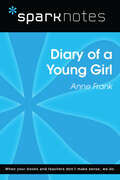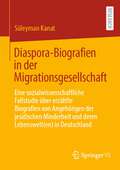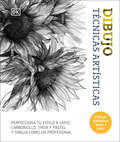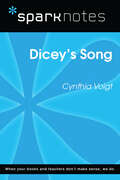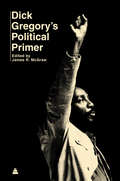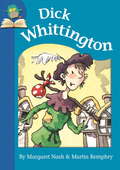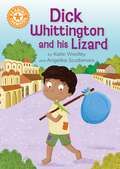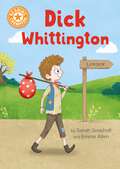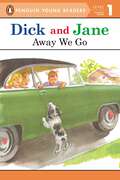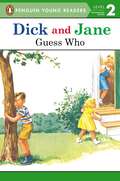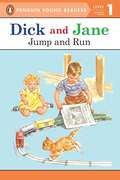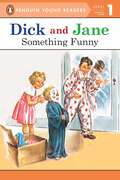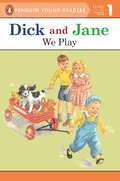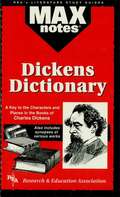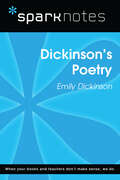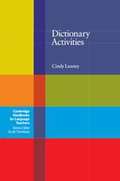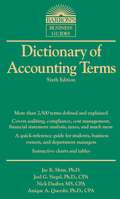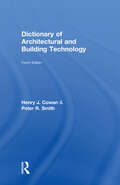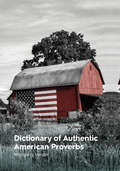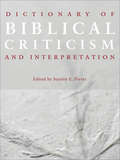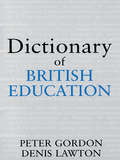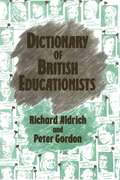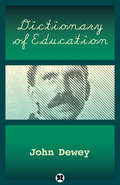- Table View
- List View
Diary of a Young Girl (SparkNotes Literature Guide Series)
by SparkNotesDiary of a Young Girl (SparkNotes Literature Guide) by Anne Frank Making the reading experience fun! Created by Harvard students for students everywhere, SparkNotes is a new breed of study guide: smarter, better, faster.Geared to what today's students need to know, SparkNotes provides:chapter-by-chapter analysis explanations of key themes, motifs, and symbols a review quiz and essay topics Lively and accessible, these guides are perfect for late-night studying and writing papers.
Diaspora-Biografien in der Migrationsgesellschaft: Eine sozialwissenschaftliche Fallstudie über erzählte Biografien von Angehörigen der jesidischen Minderheit und deren Lebenswelt(en) in Deutschland
by Süleyman KanatDie Minderheit der Jesiden, deren Angehörige mittlerweile zum Teil in der dritten Generation in der deutschen Migrationsgesellschaft leben, ist vor allem durch den an ihnen im Nordirak verübten Genozid im Jahr 2014 vorübergehend in das öffentliche Interesse gerückt. Zwar gibt es Forschungsarbeiten über die Lage dieser Minderheit im deutschsprachigen Raum, doch fehlen vor allem für die Soziale Arbeit notwendige biografieorientierte Fallstudien, die die Perspektive der Betroffenen tiefergehend qualitativ analysieren. Dieses Buch beschäftigt sich daher mit dem Fragenkomplex, welchen möglichen biografischen Herausforderungen Angehörige der jesidischen Minderheit unter den Bedingungen eines Lebens in der Diaspora einer Migrationsgesellschaft ausgesetzt seien können und wie diese von ihnen in ihren individuellen Lebenslagen und Lebenswelten artikuliert, eingeordnet und bewältigt werden. Neben der Sensibilisierung für die Lebenslagen der jesidischen Minderheit in der Diaspora ist es auch ein Forschungsbeitrag, die Komplexität migrationsgesellschaftlicher Verhältnisse aus der subjektiven Perspektive von Minderheitsangehörigen besser zu verstehen. Damit wird es auch möglich, die lebensweltlichen Voraussetzungen, unter denen die Betroffenen an institutionellen Bildungssettings teilhaben, zu berücksichtigen.
Dibujo: Técnicas artísticas (Artist's Drawing Techniques)
by DKDa rienda suelta a tu creatividad y crea una obra maestra con ejercicios paso a paso y consejos de artistas profesionales.Ya sea porque quieres probar suerte con el dibujo por primera vez o para mejorar tus habilidades artísticas, 'Pintura: técnicas artísticas' es tu libro. Aprende a trabajar con carbón, pluma y pasteles y descubre todo lo que hay que saber sobre el tono, el color, la textura, la línea y la composición con consejos detallados para artistas principiantes, intermedios y avanzados.Ejercicios paso a paso completamente ilustrados por artistas profesionales te guiarán a través de más de 80 técnicas de dibujo, que incluyen el sombreado, el puntillismo, la mezcla de colores y el 'masking'. Todas las técnicas van acompañadas de ejercicios y proyectos inspiradores para que las pruebes en casa y desarrolles tus habilidades, descubras tu propio estilo y crezcas como artista.Domina todos los aspectos del dibujo, desde seleccionar un tema hasta montar tu primera pieza, con esta guía esencial. Sea cual sea tu nivel de especialización, aprenderás a pintar con confianza y quizás crearás una obra maestra (o dos) por el camino.Kick-start your creativity and create a masterpiece with step-by-step workshops and advice from professional artists.Whether you want to try your hand at drawing for the first time or to fine-tune your artistic skills, 'Pintura: técnicas artísticas' is for you. Learn how to work with charcoal, pen, and pastels and discover everything you need to know about tone, color, texture, linework, and composition with detailed advice for beginner, intermediate, and advanced artists.Fully illustrated, step-by-step workshops from professional artists guide you through more than 80 drawing techniques, including cross-hatching, stippling, blending, and masking. All techniques are accompanied by inspiring exercises and projects to try at home to help you develop your skills, discover your own style, and grow as an artist.Master every aspect of drawing with this essential guide, from choosing a subject to mounting your first piece. Whatever your level of expertise, you can learn to draw with confidence-and maybe create a masterpiece (or two) along the way.
Dicas de Scott Howard sobre se tornar um palestrante altamente remunerado
by Richard G Lowe JrAtenção todos os oradores que querem ser pagos por falar, efetivamente falar com grupos e até mesmo superar medo do palco e medo de falar. Se você está procurando ter sucesso em falar em público, então esta entrevista com o especialista em falar em público, Scott Howard, irá ajudá-lo a entender como se tornar altamente pago para falar. Aqui está apenas uma amostra do que Scott Howard irá cobrir para você nestas páginas: • Quais são as habilidades que todo orador público precisa? • Quais ferramentas ajudam a falar em público? • Onde os palestrantes perdem seu tempo? • Quão importante é uma boa gramática? • Que tal umms e ahhs e tal? • Como são importantes os adereços? • Como lidar com um público hostil • ... e muito, MUITO Mais! Aproveite essa oportunidade para Scott te pegar pela mão e explicar não apenas como superar o medo de falar, mas como preparar e apresentar seu discurso e os segredos de ser contratado para falar. A maior parte do que você precisa é de instruções e encorajamento de alguém que "esteve lá e fez isso!" Este livro é a transcrição de uma entrevista ao vivo. Obter este livro agora e reivindicar o sucesso de falar em público que você quer!
Dicey's Song (SparkNotes Literature Guide Series)
by SparkNotesDicey's Song (SparkNotes Literature Guide) by Cynthia Voigt Making the reading experience fun! Created by Harvard students for students everywhere, SparkNotes is a new breed of study guide: smarter, better, faster.Geared to what today's students need to know, SparkNotes provides:chapter-by-chapter analysis explanations of key themes, motifs, and symbols a review quiz and essay topics Lively and accessible, these guides are perfect for late-night studying and writing papers.
Dick Gregory's Political Primer
by Dick Gregory James R. McGrawA unique and timeless guide to American government and its electoral process—as relevant today as when it was first published in 1972—from the voice of black consciousness, cultural icon Dick Gregory, the incomparable satirist, human rights and environmental activist, health advocate, social justice champion, and author of the NAACP Image Award–winning Defining Moments in Black History: Reading Between the Lies and the classic bestseller Nigger: An Autobiography.For most of his life, Richard Claxton “Dick” Gregory worked to educate Americans about the issues—and the forces of power—shaping their lives. A brilliant and informed student of the American experiment, he viewed and understood politics with an acuity few possess. Nearly fifty years ago, on the eve of Richard M. Nixon’s reelection, he wrote a classic guide to the American political system for ordinary folks. Today, when American democracy is threatened, his primer is more necessary than ever before. In Dick Gregory’s Political Primer, Gregory presents a series of lessons accompanied by review questions to educate and empower every citizen. He provides amusing, concise, and clear information and commentary on the nature of political parties, the three branches of government and how they operate, how the campaign process works and the costs, and more. Gregory offers imaginative comparisons such as the Hueys—Long, the populist Louisiana governor and Newton, the cofounder of the Black Panthers—and numerological parallels between Abraham Lincoln and John F. Kennedy. He also includes a trenchant glossary that offers insights into some of the major players, terms, and institutions integral to our democracy and government. An essential guide to American history unlike any other, Dick Gregory’s Political Primer joins the ranks of classics such as Howard Zinn’s A People’s History of the United States, and is essential reading for every American.
Dick Whittington (Must Know Stories: Level 1)
by Margaret Nash"Turn again, Whittington, Lord Mayor of London!"A beautifully illustrated retelling of this favourite traditional story. Join Dick Whittington on his journey from poor villager to Lord Mayor.Must Know Stories includes favourite tales, celebrating the diversity of our literary heritage. Level 1 stories are told in under 500 words, for children to read independently.
Dick Whittington and his Lizard: Independent Reading Orange 6 (Reading Champion #1612)
by Katie WoolleyThis story is part of Reading Champion, a series carefully linked to book bands to encourage independent reading skills, developed with Dr Sue Bodman and Glen Franklin of UCL Institute of Education (IOE)In this story, the tale of Dick Whitington is reimagined in Patna, India and Dick enlists the help of a lizard.Fantastic, original stories are accompanied by engaging artwork and a reading activity. Each book has been carefully graded so that it can be matched to a child's reading ability, encouraging reading for pleasure. Perfect for 5-7 year olds or those reading book band purple 8.
Dick Whittington: Independent Reading Orange 6 (Reading Champion #516)
by Sarah SnashallThis story is part of Reading Champion, a series carefully linked to book bands to encourage independent reading skills, developed with Dr Sue Bodman and Glen Franklin of UCL Institute of Education (IOE)Reading Champion offers independent reading books for children to practise and reinforce their developing reading skills.Fantastic stories are accompanied by engaging artwork and a reading activity. Each book has been carefully graded so that it can be matched to a child's reading ability, encouraging reading for pleasure. This retelling of the original fairytale is suitable for children aged 5-7, or those reading at book band Orange.
Dick and Jane: Away We Go (Dick and Jane #Vol. 7)
by Penguin Young ReadersSally said, "Away we go. Away we go in the car. Mother and Father. Dick an Jane. Sally and Tim"
Dick and Jane: Guess Who (Dick and Jane)
by Penguin Young ReadersMillions of Americans remember Dick and Jane (and Sally and Spot, too!). Now Dick and Jane and all their pals are back with revised editions of these classic readers for a whole new generation of readers to enjoy! Guess Who "Guess who this is," said Jane. "Guess who this is," said Sally. "And see the two little ones. Guess who."
Dick and Jane: Jump and Run (Dick and Jane)
by Penguin Young ReadersMillions of Americans remember Dick and Jane (and Sally and Spot, too!). Now Dick and Jane and all their pals are back with revised editions of these classic readers for a whole new generation of readers to enjoy! Jump and Run Sally said, "Oh, look. Mother can jump. Mother can jump and play."
Dick and Jane: Something Funny (Dick and Jane)
by Penguin Young ReadersDick and Jane see something funny. Come and see Spot! Have fun with Dick and Jane as you read along with this sweet and simple story.
Dick and Jane: We Play (Dick and Jane)
by Penguin Young ReadersDick can play. Jane can play. Spot can play, too! Have fun with Dick and Jane as you read along with this sweet and simple story.
Dickens Dictionary (MAXNotes Literature Guides)
by Editors of REA Alex PhillipsREA's MAXnotes Dickens Dictionary The MAXNotes Dickens Dictionary is your key to the places and characters in the books of Charles Dickens. This text includes synopses of each of Dickens's works, both major and minor, along with dictionary style entries referring to the body of work as a whole. A must for any student of Dickens.
Dickinson's Poetry (SparkNotes Literature Guide Series)
by SparkNotesDickinson's Poetry (SparkNotes Literature Guide) by Emily Dickinson Making the reading experience fun! Created by Harvard students for students everywhere, SparkNotes is a new breed of study guide: smarter, better, faster.Geared to what today's students need to know, SparkNotes provides:chapter-by-chapter analysis explanations of key themes, motifs, and symbols a review quiz and essay topics Lively and accessible, these guides are perfect for late-night studying and writing papers.
Dictionary Activities
by Cindy LeaneyDictionary Activities is a fantastic teaching resource which helps students get to know their dictionaries by explaining dictionary features and how to navigate them. The book also covers more complex topics such as collocations, idioms and wordbuilding. Dictionary Activities also looks at the use of electronic dictionaries and other non-standard specialized dictionaries such as picture dictionaries. In addition to providing over 90 dictionary activities to use in the language classroom, this book is also invaluable to any teacher who wants to improve their own knowledge of how dictionaries work. Dictionary Activities contains eight chapters which deal with: Confidence and dictionary skills-building activities, vocabulary-building activities, grammar activities, pronunciation activities, reading and writing activities, quick activities, CD-ROM and electronic dictionary activities and specialized dictionaries. A wealth of ideas for building dictionary skills in class and making the most of dictionaries as a teaching resource.
Dictionary of Architectural and Building Technology
by Peter Smith Henry CowanA comprehensive summary of the vocabulary used across the building industry, from the preparation of an architectural brief, through creative and technical design, to construction technology and facilities management. The latest edition has several substantially revised entries as well as many new additions, including new illustrations and terms. Covering a range of disciplines across architecture and building and including both SI metric and Imperial units, this dictionary and reference work will enable students and professionals to use and understand vocabulary from other areas of expertise, and contribute to better communication.
Dictionary of Authentic American Proverbs
by Wolfgang MiederDictionary of Authentic American Proverbs offers a comprehensive reference guide for distinctly American proverbs. Compiled by Wolfgang Mieder, a key figure in the field of proverb studies, this compendium features nearly 1,500 proverbs with American origins, spanning the 17th century to present day, including a scholarly introduction exploring the history of proverbs in America, the structure and variants of these proverbs, known authors and sources, and cultural values expressed in these proverbs. Along with a comprehensive bibliography of proverb collections and interpretive scholarship, this dictionary offers a glimpse into the history of American social and cultural attitudes through uniquely American language.
Dictionary of Biblical Criticism and Interpretation
by Stanley E. PorterFirst Published in 2007. Routledge is an imprint of Taylor & Francis, an informa company.
Dictionary of Biblical Prophecy and End Times
by J. Daniel Hays J. Scott Duvall C. Marvin PateThe Dictionary of Biblical Prophecy is a comprehensive reference tool designed to assist everyday people in understanding biblical prophecy. Based on solid scholarship, the dictionary contains clear and readable entries on a broad sweep of topics relevant to biblical prophecy, providing insight to complicated subjects in a balanced fashion.
Dictionary of British Education (Woburn Education Series)
by Denis Lawton Peter Gordon Professor Peter Gordon Professor Denis LawtonThis is an up-to-date guide for teachers and parents, administrators, governors , students and others to help the find their way about the increasingly complex world of education. The main section provides a dictionary that is more than a simple set of definitions: many words in education have been put into some kind of historical context to become fully meaningful. The second part gives some important landmarks from the nineteenth century to the present time, and also provides a list of political heads of education since state education was established. The final section is devoted to a list of acronyms and abbreviations, both of which have been the subject of multiple definitions in recent years.
Dictionary of British Educationists
by Richard Aldrich Peter GordonThis dictionary provides the reader with an easily accessible guide to the biographies of approximately 450 educationists. It covers the period from 1800 to the present day and includes a wide range of people who were active in promoting education at different levels.
Dictionary of Education
by John DeweyDictionary of Education is a comprehensive resource on John Dewey's approach to education. With smart, concise definitions pertaining to Dewey's philosophies, editor Ralph B. Winn has constructed a classic dictionary and indispensable tool for anyone who wants ready access to Dewey's most incisive thought on crucial points in the study of education.
